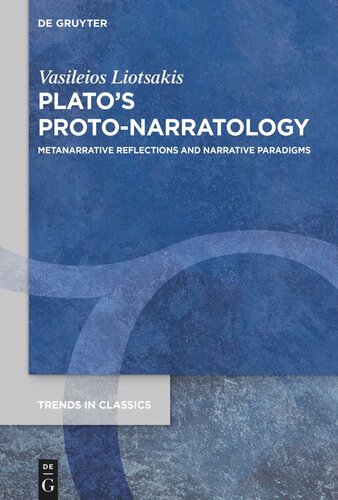

Most ebook files are in PDF format, so you can easily read them using various software such as Foxit Reader or directly on the Google Chrome browser.
Some ebook files are released by publishers in other formats such as .awz, .mobi, .epub, .fb2, etc. You may need to install specific software to read these formats on mobile/PC, such as Calibre.
Please read the tutorial at this link: https://ebookbell.com/faq
We offer FREE conversion to the popular formats you request; however, this may take some time. Therefore, right after payment, please email us, and we will try to provide the service as quickly as possible.
For some exceptional file formats or broken links (if any), please refrain from opening any disputes. Instead, email us first, and we will try to assist within a maximum of 6 hours.
EbookBell Team

4.8
54 reviewsPlato’s contribution to narratology has traditionally been traced in his tripartite categorisation of narrative modes we read of in the Republic. Although other aspects of storytelling are also addressed throughout the Platonic oeuvre, such passages are treated as instantaneous flares of metanarrative speculation on Plato’s part and do not seem to contribute to the reconstruction of his ‘theory of narrative’. Vasileios Liotsakis challenges this view and argues that the Statesman, the Timaeus/Critias and the Laws reveal that Plato had consolidated in his mind and compositionally put into effect one systematic mode in which to express his thoughts on narratives. In these dialogues Liotsakis recognizes the birth of a proto-narratology which differs in many respects from what we today expect from a narratological handbook, but still demonstrates two key-features of narratology: (a) a conscious focus on certain aspects of narrativity which are vastly discussed by narratologists and pertain to the structuring and reception of narratives; and (b) a schematised mode of interaction between metanarrative reflections and textual bodies which serve as the paradigms through which to explore the interpretive potential of these reflections.